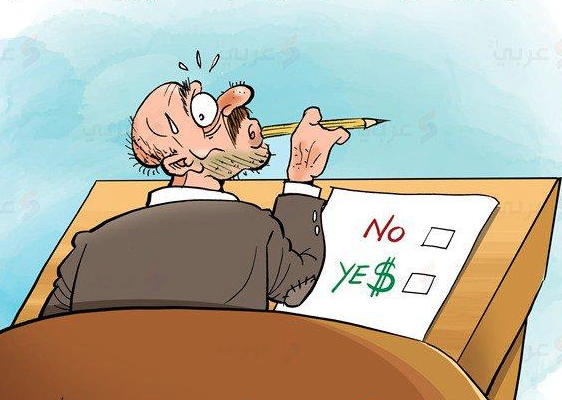Jerusalem: Between Trump’s Theatre And Haley’s Threats
In this tumultuous era of tweets, it's not always easy to discern policy from theatre. Trump’s recognition of Jerusalem as the capital of Israel is a case in point, and in the end, may be much-ado-about nothing, or close to it. In true Trumpian fashion, he boasted on 6 December that “while previous [US] presidents have made this a major campaign promise, they failed to deliver. Today, I am delivering.” This triggered a vivid worldwide reaction, and a showdown at the United Nations. Trump’s declaratory piece of political theatre and grandstanding may well hurt what is left of American international prestige.
The corridors of the UN have always teemed with horse-trading and arm-twisting. And the US, more than any other power, is known to ‘work the phones’ and exert bilateral pressure on capitals to ensure diplomatic support; under Trump it is to ensure allegiance or ‘blind loyalty’ as former CIA Director John Brennan has charged. Never has the US publicized such blatant threats as did its ambassador to the UN, Nikki Haley. On her first day on the job, as she presented her credentials in January 2017, she gave the world a taste of what was to come: “for those who don’t have our back, we’re taking names.” This threat was reiterated in a letter/email sent last Wednesday to fellow UN ambassadors, warning that the US will cut aid to those who vote in the General Assembly in favor of a draft resolution similar to the one she had vetoed in the Security Council three days earlier. The next day, notwithstanding the blatant financial American deterrent, 128 States voted to censure Trump’s decision on Jerusalem. For all of Haley’s stark warnings that the “President will be watching this vote carefully…We will take note of each and every vote on this issue”, only Guatemala, Honduras, the Marshall Islands, Micronesia, Nauru, Palau and Togo stood with the US and Israel against the resolution that called any recognition of Jerusalem as the capital of Israel “null and void”, in accordance with international law and numerous Security Council resolutions. To a certain extent, however, Haley’s public threat worked as 35 countries abstained, and 21 did not vote, most notably Ukraine, a Security Council member which had voted positively in that rare 14 to 1 rebuke of the US. To thank them ‘for their friendship’, the US Ambassador invited them to a reception.
In the turmoil following Trump’s Jerusalem declaration, one important detail may have been lost. When the “Jerusalem Embassy Act” became US law in November 1995, it should have been clear to anyone without blinkers, that the US had isolated itself from the international community: the law states “as a matter of policy” that Jerusalem should be the “undivided capital of Israel”. The Act arguably violates a core principle of the Charter of the United Nations: the non-acquisition of territory by force. It appears to accept the 1967 annexation of East Jerusalem and ignores countless Security Council resolutions, most notably resolution 478 of August 1980, which condemned Israel for the enactment of its ‘basic law’ on Jerusalem and called on States with diplomatic missions in Jerusalem to “withdraw such missions from the Holy City”. As a result, the few countries with established diplomatic missions in Jerusalem relocated their embassies.
While there seems to be an amalgamation of perceptions, not to say confusion, on what is US policy on Jerusalem, the long-held consensus at the UN is that the Holy City, under international law, is subject to a ‘final status agreement’ between Israelis and Palestinians, and should remain corpus separatum until then. The confusion about the US position stems from the waiver signed by all presidents since 1995, including Trump, to delay the relocation of the US Embassy. The fact remains that world leaders who hold official meetings with the Israeli government in Jerusalem, or address the Knesset in Jerusalem, like President Sadat of Egypt did forty years ago, also recognize (West) Jerusalem as the (de facto) capital of Israel. But what is critical is not the recognition of a country’s “capital” (which is not customary in international relations) but recognition of sovereignty of that State over territory. And the 1995 Jerusalem Embassy Act, well before Trump, did that.
The US President knows how to stir the pot, irrespective of consequences, and thrives on political theatre. His pronouncement on Jerusalem created an expected international backlash. In contrast, the Russian Ministry of Foreign Affairs quietly stated on 6 April 2017 that it “view[s] West Jerusalem as the capital of Israel”. Few took notice of this recognition, which arguably also defies the unique international status of the Holy City.
Back at the UN, the letter of Ambassador Haley fell way short of defeating the resolution. Botswana (population 2.2 mi.) issued a statement voicing its disdain and rejection of Nikki Haley’s “threatening and grossly inappropriate communication, whose purpose would be to undermine the sovereignty of Botswana as an independent country, [it] also demonstrates unprecedented diplomacy… Consequently Botswana will not be intimidated by such threats and will exercise her sovereign right and vote based on her foreign policy principles which affirm that Jerusalem is a fundamental final status issue.”
In international affairs, when superpowers grandstand, even the smallest nations can rebuff and ridicule them. Now that she has threatened to cut off aid, next time she will have to threaten to send in the cavalry. New to diplomacy, after taking down names, Ambassador Haley should also take note: bullying will only get you so far.
Originally published on Huffington Post December 22, 2017
